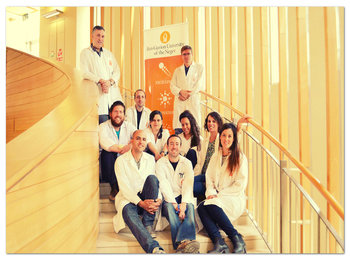Nearly three thousand students arrived in Boston last week to compete in the 12th annual International Genetically Engineered Machine (iGEM) competition. Dubbed the “world’s premier synthetic biology competition,” both high school and university students from across the globe participated in the iGEM 2015 Giant Jamboree to test their knowledge of synthetic biology and solve real-world challenges that were presented to them.
"In our 12th year, the annual iGEM competition has not only become the central means for universities to teach synthetic biology, but iGEM has become an incubator—with the Giant Jamboree seeding the market with new innovations,” said Randy Rettberg, president of the iGEM Foundation, a non-profit committed to the education, competition and advancement of synthetic biology. “Many winning projects and teams form new companies that quickly make an impact, resonating across the global marketplace."
Each year, the competition presents medals and awards to those high school and university teams that went above and beyond in their respective categories, developing projects and applications that show immense potential. This year, two postgraduate teams of note hailed from Israel.
Ben Gurion University of the Negev’s “overgraduate” team had the honour of being the first runner-up in the overall competition, the farthest an Israeli team has ever gone in an iGEM Giant Jamboree.
The team also took first place in the best health and medicine project category with "The Boomerang system – engineering logic gate genetic device for detection and treatment of cancer."
The "Boomerang system" is a method of fighting against cancer based on genetic engineering. Specifically, the modular system looks to prevent the harmful effects of chemotherapy and radiation, allowing specialists to identify only cancerous cells during treatments.
"We arrived excited and motivated to represent Israel and Ben Gurion University and to take part in a competition with participating teams from the best universities in the world – and we did," the team stated following their win, reports Ynet News. "Our vision is to continue to promote and solidify the state of Israel and Ben Gurion University on the map at the forefront of development and innovation in the field of synthetic biology."
According to the team's website, the "Boomerang system can be potentially designed according to unique characteristics of a patient's tumour, paving the way to personalized medicine." The team hopes that the strategy will eventually "change the approach to cancer treatments."
The Technion Israel Institute of Technology also won a first place award for best application, and brought home awards in the best presentation, best applied design and best new basic part categories.
For a full list of winners, click here.
